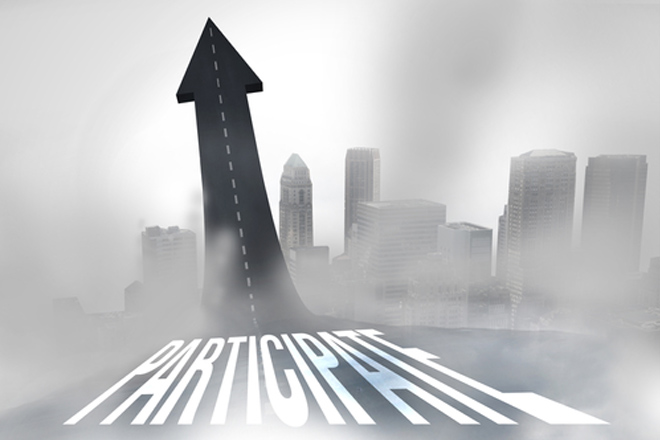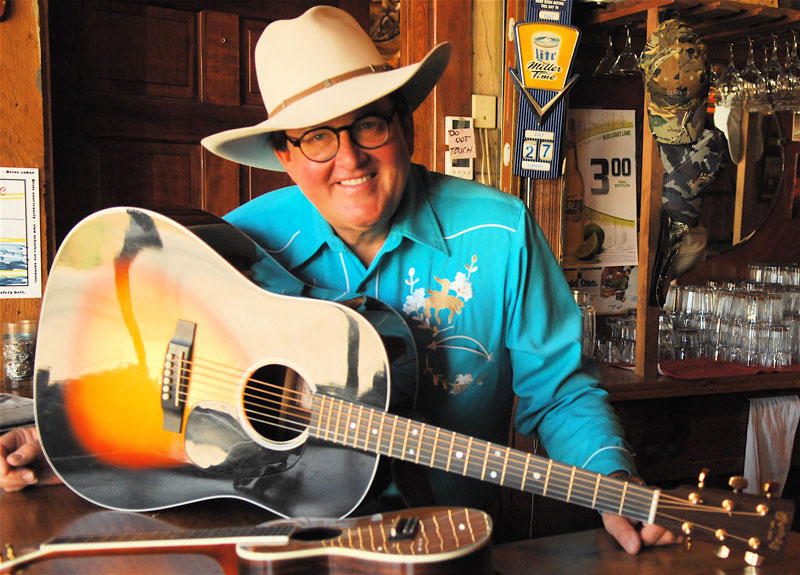This is the 25th year of Strategic Programs, Inc.’s incorporation. In the field of human capital and organizational assessments, development, and solutions, we have outlasted many competitors through major economic upheavals, and as a result, we are stronger and wiser.
Our three-year strategic plan builds on strengths that have helped us survive in lean years and thrive in good ones; adds value to the company; and leverages our differentiators to benefit our owners, employees, and client partners. So … what foundational strengths have served us well for twenty-five years and will take us into the future?
Strategic Programs designs client-specific employee and organizational assessments that provide actionable data. Our data-driven solutions are then monitored, measured, and adjusted to support the client’s business objectives.
“In God we trust. All others bring data,” said W. Edward Deming. With limited time, financial and human resources, businesses can ill-afford to base decisions on anecdotal data. Even if they correctly identify needs and know what to do about issues, a baseline helps to prioritize the issues. It also gives it a foundation against which they can measure the impact of interventions, and tracks the extent to which the interventions are effective or need to be adjusted. If the data shows that they have achieved their objective, they can change their focus, and reallocate their limited resources on another low score. What could be more cost-effective?
Research is only as good as the assessment questions it asks, its implementation process, and the way that results are reported. To get actionable, easily understandable quality data, and to optimize the quantity of it, questions must be specific, reliable, valid, aligned with the organization’s culture, and easily communicated in their terminology. The process by which research is conducted must also use these guidelines, and respondents must be trained to provide candid, quality answers. Respondent anonymity and confidentiality of the results must be ensured, and options for data collection (i.e., paper, internet, phone interview) must be provided.
Another foundational strength is the broad range of our flexible human, technology, and research capabilities and processes in addressing clients’ needs.
INSERRT GRAPHIC: The Employee Lifecycle
We are client-centric - Our assessments are designed to help our clients get the highest quail
At each point in the Employee Lifecycle—from selection to onboarding, through engagement and professional development, to disengagement, exiting and re-recruiting top talent—we address people management and leadership issues that are linked to achieving business objectives, with a measurable ROI.
Strategic Programs retained 94 percent of its clients through the recent recession. The majority of the 6 percent who did not renew contracts said, “We’ll be back.” Mid-2012 saw the return of those in industries that are leading economic indicators. Clients tell us that they stay with us for years because we exceed their expectations in being:
- Client-centric. Our research department designs each job to provide the highest quality and quantity of data.
- High-touch. Our committed, engaged staff is values-aligned, and knows inherently how to meet their needs. They see the impact of their work on organizations, which is the non-financial part of their compensation. Our service level sets us apart.
- High-tech. Strategic Insight is a web-based portal that allows clients who prefer to be hands-off to see their data in real time, as surveys are completed, while maintaining respondent anonymity. They can produce their own reports. Strategic Insight was developed through client collaboration, and is improved with client feedback in order to help us meet their ever-evolving needs. Clients helped us with the competitive analysis to design this dashboard that surpasses what they have seen elsewhere for ease of use.
- Data-driven solution providers. Our research has no value unless clients understand the data in depth, outline cost-effective solutions—usually, best practices that we provide—and implement them to get measurable results.
- Results-focused. We help clients hold people accountable for following the plan, remind them of the follow-up measurement when the results are reviewed, and expect to see an upward trend.
Our vision statement summarizes the root of our success since 1988: “To improve the human ecosystems of organizations, in which the development of individuals expands to improve their families, their communities … and the world.”
For the future, how do we plan to leverage our differentiators to grow Strategic Programs?
Listen and deliver. Of our assessments at each point of The Employee Lifecycle, only two existed when Strategic Programs incorporated. The rest were developed at our clients’ requests. Our staff will continue to listen for changing needs, as we have for a quarter of a century, to measure new people problems, and develop solutions for those challenges – with an ROI.
(SIDEBAR: “Most organizations customize, but within limits. Instead, you…have opened your arms to developing new and continually more creative ways, unique to Johns Manville, to meet our changing product and service needs.” -- Manager, Leadership and Organization Development, Johns Manville)
Doing so in the mid-1990s, helped us develop the Strategic TurnOver Program™, which is now just over 72% of our business. When Frito-Lay, a hospital system, and one Bureau of Reclamation region were losing good employees, they could not get candid, actionable responses from internal exit interviews to tell them why people were leaving. Nor could they find information on how anyone anywhere was getting good exit data.
At the time, Strategic Programs offered only the Strategic360® assessment for individuals and employee satisfaction surveys. Our CEO, Rim Yurkus, however, knew that, as an external third party, we could collect much higher quality employee satisfaction survey data than human resources professionals could collect internally. If we could do that with current employees, how could we successfully collect data from former employees?
First, we changed present tense employee satisfaction survey questions – e.g., I have good friends at work – to the past tense for exit interviews – e.g., I had good friends at work. Next, we developed proprietary processes to engage exited employees to complete surveys or telephone interviews.
The Strategic TurnOver Program™ (STOP) now provides unequalled, high quality and quantity of actionable exit data, with proven client-specific reporting and data-driven retention solutions. We conduct thousands of interviews each month, and have graduated decades-long clients from focusing on turnover to strategically managing turnover. By retaining and rewarding high potentials and cycling out disengaged employees, our clients evolve their organizations to higher levels of performance on a continual basis, and the Strategic TurnOver Program™.
(GRAPHIC: See chart “The Real Reasons for Leaving” in M:Products/Multi-Products/External Sales Collateral/Sales Presentations/Permanent Changes in Slide Deck -- Slide 3.)
Earn a contract with a magnet in an industry. This business development strategy has served us well in entering new industries. When we earn a contract with one of the most successful, highly respected businesses in a well qualified target market, and establish visibility in that industry through marketing, other major players in that market have become interested in what we offer. We have entered at the highest level of those companies, shortened the sales cycle, and won big contracts in industries such as:
Transportation. Our contract for driver exit interviews with Schneider Transportation, an early adopter and one of three top U.S. transportation firms, earned us an audience with Swift Transportation and JB Hunt – both of whom soon became clients. Within a year, we were doing driver exit interviews for most of the top ten trucking businesses. Of the current Top 100 from Transport Topics we have worked with 24.
Healthcare. After we won our first healthcare system in 1997, Catholic Health Initiatives, with some 70 locations, led us to two other large Catholic healthcare systems. Two years later, most of our clients were large Catholic hospital systems. They came to us largely through referrals. Today, we work with 8% of all hospitals in the U.S.
Senior Living, Long Term Care. We recently earned a contract with the largest Senior Living business in the U.S., a company with more than 600 locations. We plan for this magnet to pave the way for other major players in this growing sector.
We have used this strategy for business development in industries that employ specific professions – most notably, engineers, and client services personnel. For the latter, we conduct exit interviews in 8 languages in some 30 countries, and are Safe Harbor Certified. We continue to leverage our foreign language abilities to work with more global companies.
Also, we are expanding into markets where our clients do business. For example, many of our hospital clients have long-term care facilities, and can connect us to the sector that is not owned by hospitals. This will also take us into high-end continuing care residential communities that offer the full range of care for the elderly – from independent living, to assisted living, to memory care, and hospice.
How is our Strategic Plan adding value to the company for our second quarter century? We can offer hands off solutions yet we excel at maintaining high levels of trust with our clients.
Planning. We build value through scalability and sustainability, knowing that inevitably, there will be an unforeseen global, economic or industry crisis.
Reviewing Business Plans. When Annual Business Plans are retained over the years, they comprise a chronicle of annual performance against the plan, how and why plans were adjusted, and to what extent goals and projections were achieved annually.
Goal-Setting. Our Executive level goals cascade to departments where managers align their own goals for consistent quality performance. Individual goal setting help us with career paths and succession planning.
Reducing Client Concentration. Diversifying our client concentration will help us to thrive in challenging economic times. Where we have had less experience outside of our major industries, we will expand in order to acquire specific clients in those sectors. Because most of our business is outside of Colorado where we are headquartered, we can use Colorado as our laboratory for diversifying our client base.
Developing second level management. Having laid off a level of management in the middle of the recession, we are now replacing them. We have hired an Executive Vice President of Business Development and our CEO and Co-founder has stepped back and brought on a President. This will free up our CEO for more client interface, and research and development of new capabilities.
Along with succession planning, we are strengthening our critical functions back-up as a safety net in case valuable talent leaves for voluntary or involuntary termination.
Maximizing Curb Appeal. First impressions of individuals and of businesses are important and lasting. They communicate what the owners value, what clients expect, and where the company is going. Our offices in Cherry Creek are inviting and reflect the West that is so appealing to our clients in the rainy Northwest or stark Central time zones. They are delighted to be invited to Denver for their quarterly research report deliveries in a conference room with a view of the snow-capped Front Range.
Documentation. The important and not urgent documents that were not updated during the recession are in our sights for editing this year – e.g., our Employee Handbook, Policies and Procedures manual, Marketing Style Guide, etc. Our legal document templates will also be reviewed for possible updates.
Technology upgrades. Across the board, we have improved our CRM for Sales and Marketing, acquired prospect tracking and lead generation software, and developed our state -of- the-art Strategic Insight client portal for real-time access by clients to their data. Updating our proprietary software for data collection and report generation will continue to reduce labor costs, and be cost-effective and time efficient.
As we begin our second quarter of a century in business, we revisit the inscription below the cowboy boot that is the Still Kickin’ Award given to the owners at the 2009 Annual Holiday Awards Dinner by our loyal, committed employees. The inscription reads:
Awarded to the owners for their dedication, flexibility, and commitment to their employees and to their company, enabling Strategic Programs to persevere through even the greatest of challenges.
Diane Irvin is the senior vice president and co-founder of Strategic Programs, Inc. For more information, visit www.strategicprogramsinc.com, or call 1.800.800.5476.
 What does a Participation Age company look like?
What does a Participation Age company look like?






































